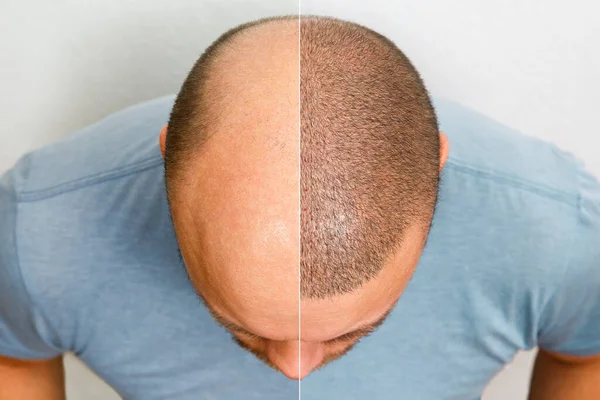


Hair loss is a common issue affecting both men and women across the world. It can be a source of significant distress, impacting self-esteem and confidence as it directly affects the looks. Fortunately, modern medicine offers several ways to treat hair loss, from non-invasive medications to surgical hair transplants. The decision between opting for hair loss medication or a hair transplant depends on multiple factors such as the stage of hair loss, budget, long-term goals, and personal preferences. This blog will explore both options in detail, helping you understand which solution might be best for your hair restoration journey.
- The medical term for hair loss is alopecia, which refers to a variety of conditions that cause thinning or loss of hair from the scalp or body. The most common form of hair loss, especially in men, is androgenetic alopecia (also known as male pattern baldness or female pattern baldness in women). Other types of hair loss include telogen effluvium (often caused by stress) and alopecia areata, which is an autoimmune condition.
Causes of Hair Loss
There are multiple causes of hair loss, including:
(Only for information purposes, use only after doctor’s advice)
- In addition to medications, there are medicated shampoos that help manage hair loss in case of dandruff or other scalp conditions. Ingredients like ketoconazole, salicylic acid, and zinc pyrithione are commonly used to maintain scalp health and reduce hair thinning. These shampoos can be used in conjunction with other treatments for improved results.
- Hair loss medications are typically more effective for those in the early stages of hair loss. They can help slow down the process, promote hair regrowth, and maintain existing hair. However, the results vary from person to person, and the medications must be used continuously to maintain results. Stopping the medication often leads to the loss of any newly regrown hair.
A hair transplant involves removing hair follicles from a donor area (typically the back of the head) and implanting them into areas of thinning or baldness. The two primary methods are:
At our clinic, we take it a step further with advanced technologies for the different stages of hair transplant surgery. We use Laser Technology for hairline design, the Trivellini System for extraction, and our unique Hair Lab for follicle storage. For implantation, we follow the No Root Touch method, which ensures zero damage to the hair follicles during the process.
- Hair transplant surgery is growing in popularity in India due to the availability of world-class clinics and surgeons at affordable costs. Leading clinics, such as RQC Hair Transplant Clinic, provide customized treatment plans with the latest technology to ensure the best results.
- A hair transplant is a long-term solution, providing natural-looking and long term results. It is highly effective for those with advanced hair loss who are looking for a more definitive solution than medications can offer. The success rate is high, and most patients regain a full, healthy head of hair when treated at an early stage of pattern baldness.
- After the surgery, it can take several months for the transplanted hair to grow in fully. Most patients start seeing visible results within 8-12 months. Recovery involves avoiding certain activities like swimming or heavy workouts to protect the grafts for at least 1 month.
Hair loss medications are best for individuals who are in the early stages of hair thinning or who prefer a non-invasive treatment. They are also suitable for those on a tighter budget or who are not ready to undergo surgery.
A hair transplant is ideal for individuals experiencing advanced hair loss who are looking for a long term solution. It's also recommended for those who have tried medications without seeing significant improvement.
Yes, medications like minoxidil and finasteride can be used post-hair transplant to maintain the results and prevent further thinning. Additionally, treatments like PRP (Platelet-Rich Plasma) or LLLT (Low-Level Laser Therapy) can be combined with a hair transplant for enhanced results.
Deciding between hair loss medications and a hair transplant depends on the stage of your hair loss, your long-term goals, and your budget. Hair loss medications are a good temporary solution for those with early-stage hair loss, while a hair transplant offers a solution for more advanced cases. Consult with a hair specialist doctor at a reputable clinic to determine the best course of action for your unique situation.
